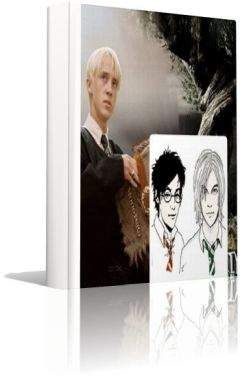climb [klaIm] hush [hAS] colleague ['kOli: g] adoption [q'dOpS(q)n]
society [sq'saIqtI]
"She must have went with one of they niggers that used to come."
Lou could never be sure if that was what she heard from the doorways and landings as she climbed the stairs of Cripps House, the neighbours hushing their conversation as she approached.
"I can't take to the child. Try as I do. I simply can't even like it."
"Nor me," said Raymond. "Mind you, if it was anyone else's child I would think it was all right. It's just the thought of it being mine, and people thinking it isn't."
"That's just it," she said.
One of Raymond's colleagues had asked him that day how his friends Oxford and Henry were getting on. Raymond had to look twice before he decided that the question was innocent. But one never knew… Already Lou and Raymond had approached the adoption society. It was now only a matter of waiting for word.
"If that child was mine (если бы это была моя малышка)," said Tina Farrell, "I'd never part with her (я бы никогда с ней не рассталась). I wish we could afford to adopt another (хотелось бы мне, чтобы мы могли себе позволить усыновить еще одного ребенка). She's the loveliest little darkie in the world (она самая прекрасная черненькая малышка в мире)."
"You wouldn’t think so (ты бы так не думала)," said Lou, "if she really was yours (если бы она действительно была твоей). Imagine it for yourself (представь себе: «это для себя»), waking up to find you've had a black baby (/каково это/ очнуться и обнаружить, что у тебя черный ребенок; towakeup— просыпаться, опомниться) that everyone thinks had a nigger for its father (и каждый думает, что у нее отец какой-нибудь ниггер)."
"It would be a shock (да, это действительно было бы шоком)," Tina said, and tittered (и хихикнула).
"We've got the blood tests (у нас есть анализы крови)," said Lou quickly (сказала Лу быстро).
Raymond got a transfer to London (Раймонд перевелся: «получил перевод» в Лондон). They got word about the adoption very soon (они получили решение об усыновлении очень скоро).
"We've done the right thing (мы поступили правильно: «мы сделали правильную вещь»)," said Lou. "Even the priest had to agree with that (даже /нашему/ священнику пришлось согласиться с этим; toagree— соглашаться, сходиться во мнениях), considering how strongly we felt against keeping the child (принимая во внимания, как сильно мы противились тому, чтобы оставить ребенка; strongly— крепко, решительно, tofeel— трогать, чувствовать, ощущать)."
"Oh, he said it was a good thing (о, он сказал, что это хорошо: «хороший поступок»)?"
"No, not a good thing (нет, не хорошо). In fact (на самом деле) he said it would have been a good thing (он сказал, что было бы хорошо) if we could have kept the baby (если бы мы смогли оставить ребенка). But failing that (но, /так как мы оказались/ не в состоянии сделать это; tofail— потерпеть неудачу, провалиться, не суметь, не быть в состоянии), we did the right thing (мы поступили правильно; therightthing— как раз то (что надо)). Apparently, there's a difference (очевидно, что разница все-таки есть)."
afford [q'fO: d] titter ['tItq] transfer ['trxnsfq: ] apparently [q'pxrqntlI]
"If that child was mine," said Tina Farrell, "I'd never part with her. I wish we could afford to adopt another. She's the loveliest little darkie in the world."
"You wouldn't think so," said Lou, "if she really was yours. Imagine it for yourself, waking up to find you've had a black baby that everyone thinks had a nigger for its father."
"It would be a shock," Tina said, and tittered.
"We've got the blood tests," said Lou quickly.
Raymond got a transfer to London. They got word about the adoption very soon.
"We've done the right thing," said Lou. "Even the priest had to agree with that, considering how strongly we felt against keeping the child."
"Oh, he said it was a good thing?"
"No, not a good thing. In fact he said it would have been a good thing if we could have kept the baby. But failing that, we did the right thing. Apparently, there's a difference."


